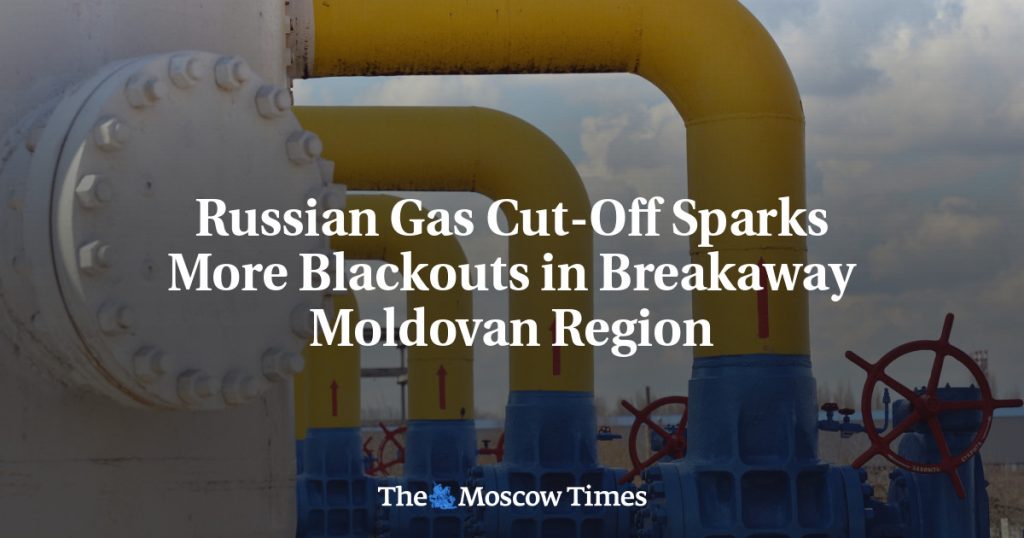Transnistria, a separatist region in Moldova, is facing a crisis as a result of a shutdown in Russian gas supplies, leading to rolling blackouts and a lack of heating and hot water for its residents. The region, which is pro-Moscow and self-proclaimed, has been unable to provide basic necessities to its residents since the gas supply was cut off. The situation has led to a significant impact on daily life, with the largest city, Tiraspol, experiencing blackouts and smaller towns and villages also affected. The region’s leader has announced that the blackouts will need to be prolonged as energy supplies run out, with specialists recommending an increase in the duration of the blackouts.
The crisis in Transnistria was further exacerbated by the end of a major gas transit agreement between Moscow and Kyiv, which took place on the same day as the gas supply was cut off to Moldova. This has left Transnistria without access to gas and struggling to find alternative sources of energy. The region’s largest power station has resorted to burning coal in an attempt to provide electricity to its residents. Most industries in Transnistria have come to a standstill, and authorities are urging residents to gather firewood in order to stay warm during the winter freeze. The situation highlights the precarious position of the tiny breakaway republic and the challenges it faces due to its dependence on external energy sources.
Transnistria has been de facto controlled by pro-Russian forces since the collapse of the Soviet Union, but it is internationally recognized as part of Moldova. Moldova itself is a small ex-Soviet republic that is sandwiched between Ukraine and EU member Romania. The country is aiming to join the European Union, much to the ire of Moscow. The geopolitical tensions in the region have contributed to the current crisis in Transnistria, with the consequences of the gas shutdown affecting the daily lives of its residents. The region’s pro-Moscow leader has warned that the situation is likely to worsen in the coming days, with the need for longer blackouts and growing concerns about the availability of energy supplies.
The crisis in Transnistria highlights the vulnerability of the region, which is caught in the middle of geopolitical tensions between Russia and the West. The lack of access to essential resources such as gas has impacted the everyday lives of its residents, leaving them without heating and hot water during the harsh winter months. The situation also raises questions about the region’s long-term viability and its ability to sustain itself without external support. As the crisis continues to unfold, there are growing concerns about the humanitarian implications for the residents of Transnistria and the need for urgent assistance to address their basic needs.
The international community has been largely silent on the crisis in Transnistria, with little attention paid to the plight of its residents. The region’s status as a breakaway republic and its complex political situation have made it a challenge to address the needs of its population. However, the current crisis underscores the importance of finding a resolution to the conflict in the region and ensuring that its residents have access to essential services. As the situation in Transnistria continues to deteriorate, there is an urgent need for international intervention to provide humanitarian assistance and support to alleviate the suffering of its residents. The crisis serves as a stark reminder of the human cost of geopolitical conflicts and the impact they have on vulnerable populations.


